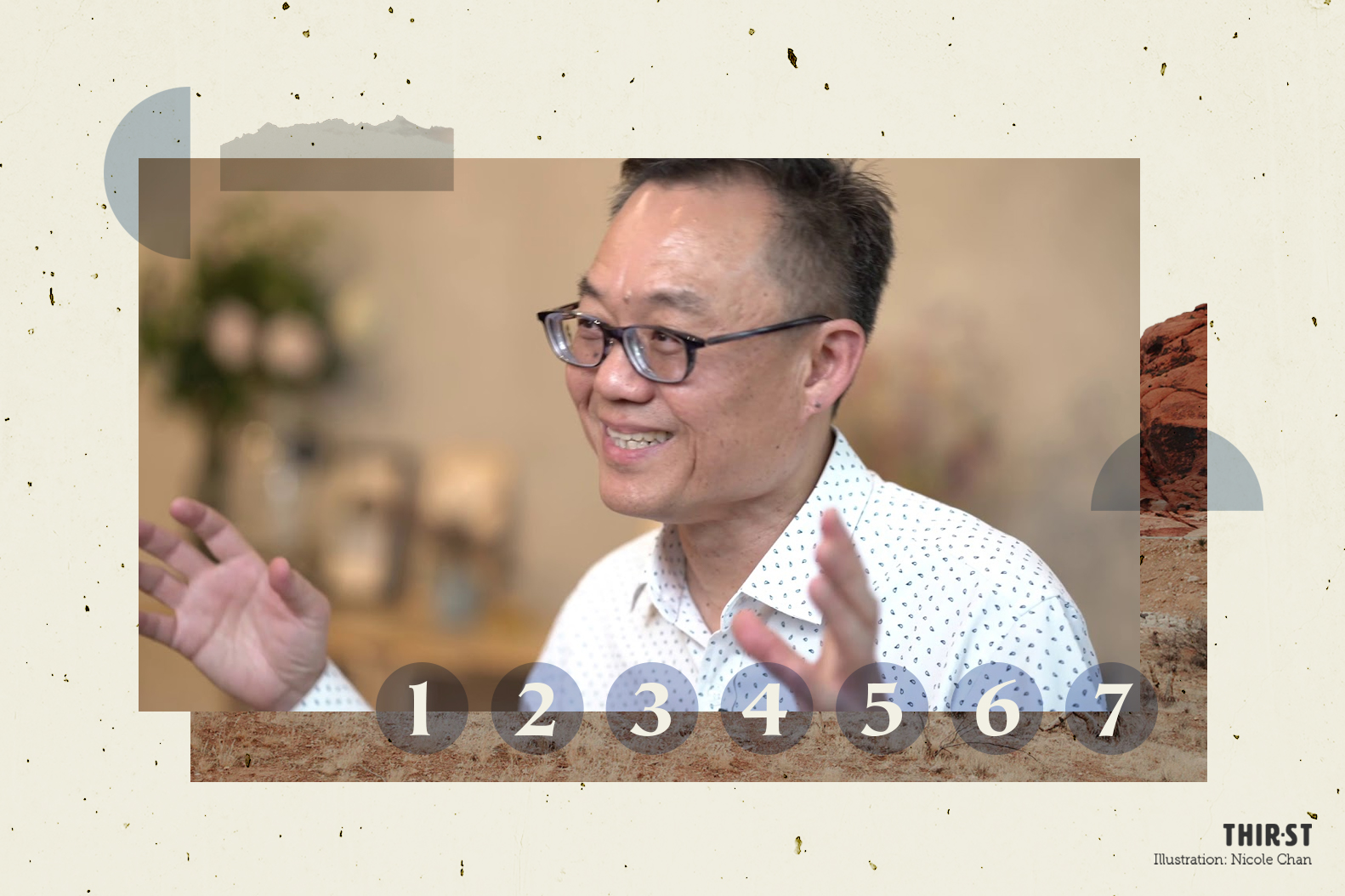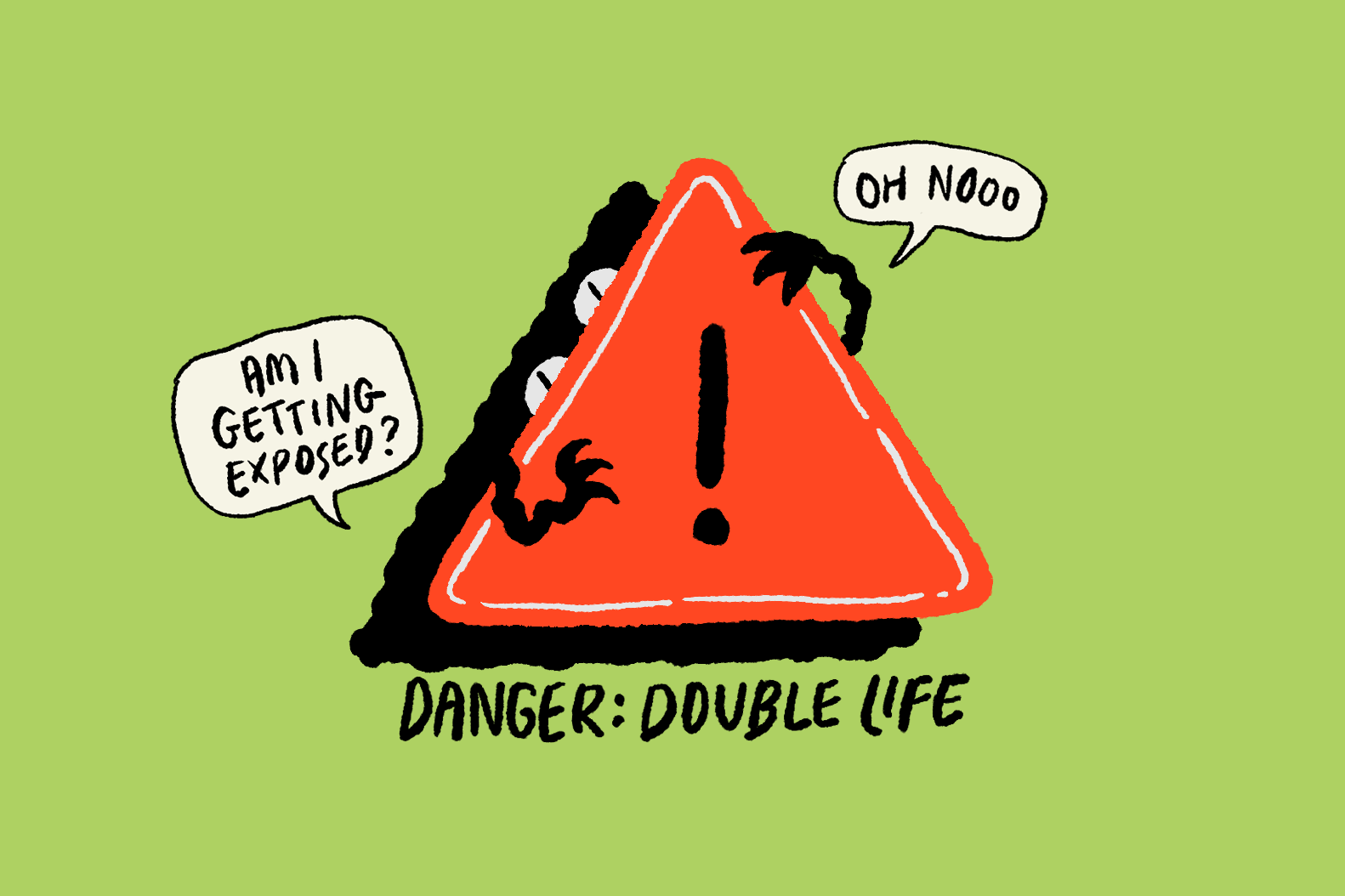When the pandemic started, I thought that it would be like SARS that took a couple of months before we came back to normalcy.
But the next thing we knew, we were in a global lockdown. All our plans were changed overnight, and all our goals had to be adjusted.
Year 2020 went from great anticipation to great apprehension!
We are now living in what is called a new normal. In light of this new normal, how do we continue to make disciples?
What are the key lessons on discipleship that we have learnt through this pandemic season? Allow me to suggest 7 ways a crisis changes our perspective and shapes us.
1. CRISIS CREATES CLARITY
Crisis creates clarity! This crisis can clarify what is important and what is not.
Crises help us to differentiate between what are “need-to-haves” and what are simply “nice-to-haves”.
We’ve realised that not having big events and mega conferences is not going to sink our ship. It will be nice to have them, but it is not fatal if we don’t have them.
But if we do not have a strong cell group system, it will really sink our ship! If our cell groups are not there, we do not even know who is still there and who is gone!
We can put up a great livestreamed service Sunday after Sunday, but we will never know who is watching and who is not.
It is only through our cell leaders that we know where our people are and what is happening to the last person in the church.
This is how critical our cell groups are. We learnt that to go deeper, we must go smaller!
COVID-19 has stripped the church down to our irreducible minimum.
It takes a crisis to uncover our spiritual foundation — or the lack of it. There is nothing like a crisis that can drive us back to the basics.
No amount of prayer concerts, prayer prompters or prayer campaigns can drive people to prayer like a crisis can.
We discovered that no number of seminars, conferences and retreats can replace the daily need to feed ourselves with the Word of God.
We are stripped down to personal solitude with God, heart-to-heart sharing and praying in small groups, learning to feed ourselves with the Word of God, spending time with family and seeking ways to serve others in need.
It is simply back to basics.
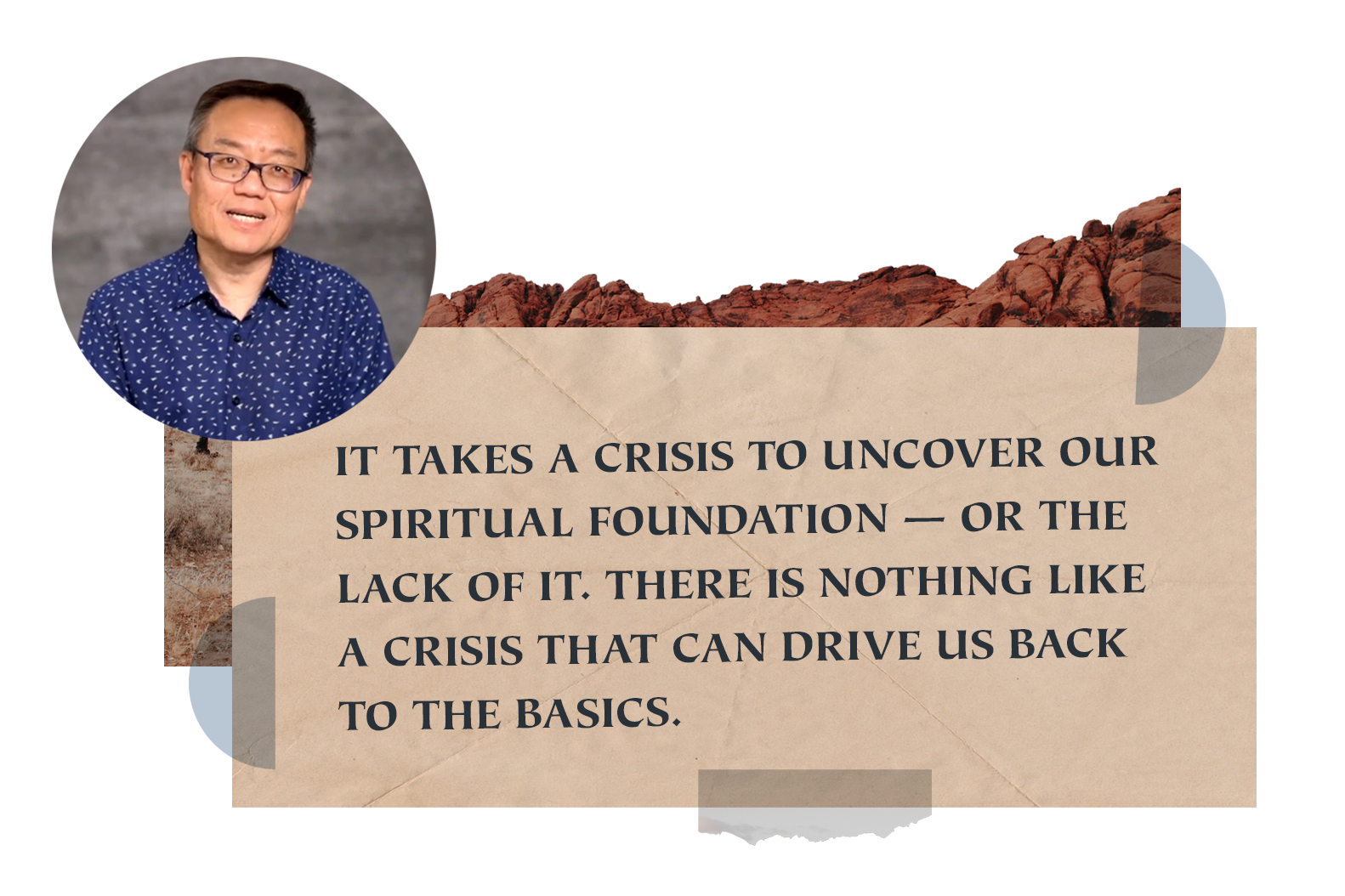
What are these spiritual basics that we must devote ourselves to?
The Holy Spirit reminded me of Acts 2:42: “They devoted themselves to the apostles’ teaching and to fellowship, to the breaking of bread and to prayer.”
The Early Church devoted themselves to the “apostles’ teaching” which is content.
They also devoted themselves to “fellowship” which is community.
And they devoted themselves to the sacraments of the “breaking of bread” and “prayer” which are consecration.
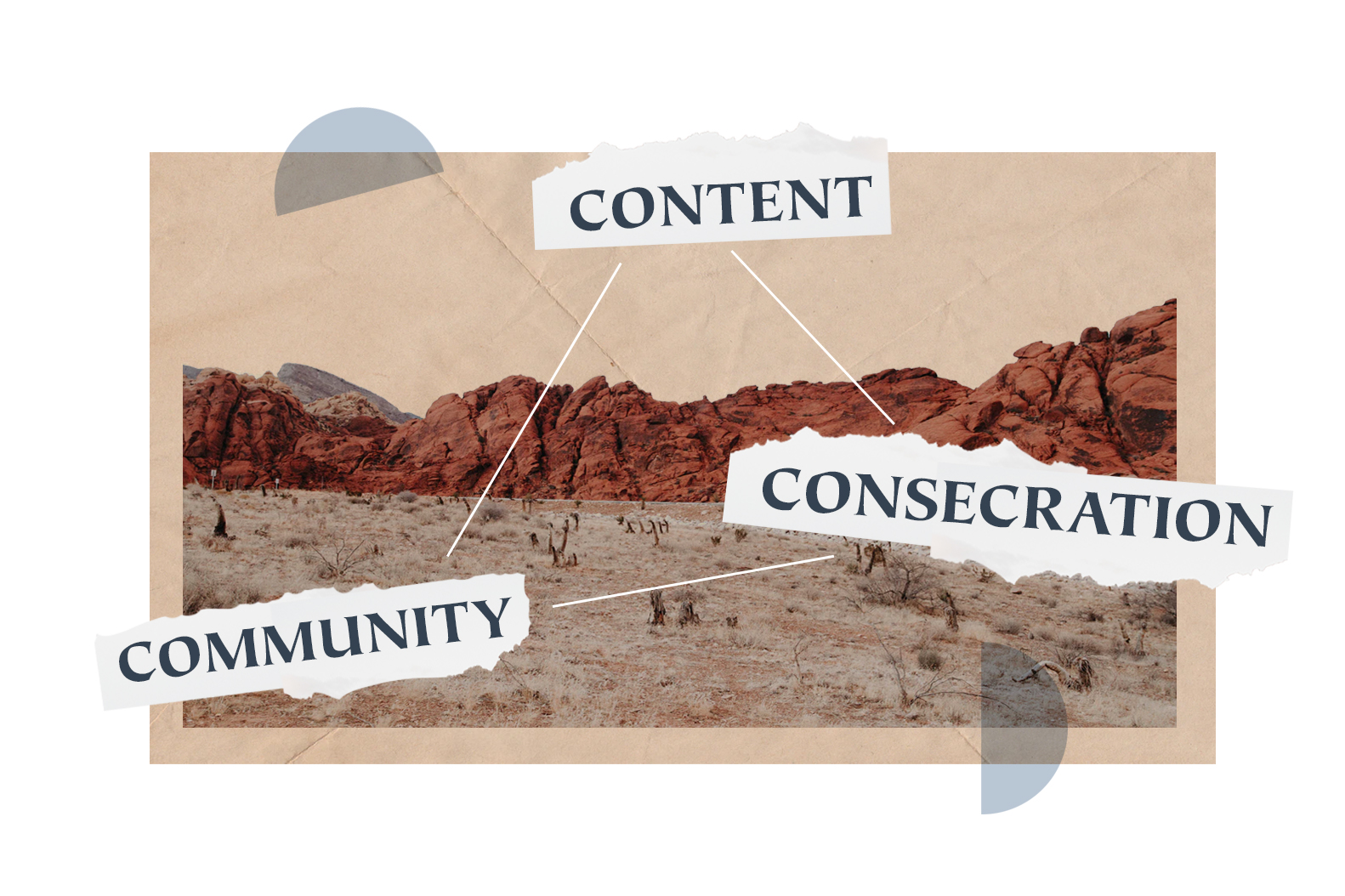
Do you see the trigonometry between content, community and consecration?
Notice that content without a community to do life together will result in a cognitive Bible study group.
However, a community that is not cradled by the Word of God will become a social group.
But content cradled by community with a commitment to go on a path towards consecration will result in authentic discipleship.
This is clearly what we must fundamentally devote ourselves to. This is back to basics!
2. CRISIS REORDERS PRIORITIES
In the normal busy lives that we lead, we often have competing priorities or even conflicting priorities. In a crisis, we learn to give priority to the essential things of our lives.
During this period of COVID-19, I found that we have given more time to a few key priorities.
In terms of personal time with God, we’ve been practising the spiritual disciplines of solitude, prayer and reading.
There’s been focused time with family. Even though it is online, we now have weekly Zoom with our extended family overseas because everyone is at home.
This is a good time to decide what to stop, start and sustain in our personal walk, family life and church ministry.
I’ve also had more “think time” for myself — I have more time now to reflect, write, take walks and catch up on reading.
And there’s been “add value time” for others. I have more time now to think about how to add value to others like more mentoring time with my team pastors and catching up with my mentors because I know they are at home.
I am thinking of ways that I can be a blessing to others. For instance, we’ve just made all my past teaching materials online free to the Body of Christ.
We started getting to know our neighbors along our street. We’ve become more intentional about adding value to others around us.
In the face of imminent dangers, our priorities are rearranged.
This is a great opportunity to have deep conversations about what we are living for.
This is a good time to decide what to stop, start and sustain in our personal walk, family life and church ministry.
3. CRISIS REVEALS FAULTLINES
This crisis is a great opportunity for us to examine the condition of our heart and make fresh discipleship decisions.
Before the pandemic, we could easily use our busyness as an excuse for not spending time with God.
But now that we are in lockdown and we have time, does it mean that we will spend time with God? Maybe not!
Suddenly, we realise that the root problem was not about a lack of time but a lack of holy desire.
Is it an issue of our schedule or is it an issue of a lack of deep relationship?
We always assume that we are too busy to spend time with our family. But now that we have the time, does it mean that we will spend time with our family?
Is it an issue of our schedule or is it an issue of a lack of deep relationship?
The lack of holy desire or depth of relationship is a fault line that has always been there — we just never needed to deal with it.
But now, fault lines like this are exposed!
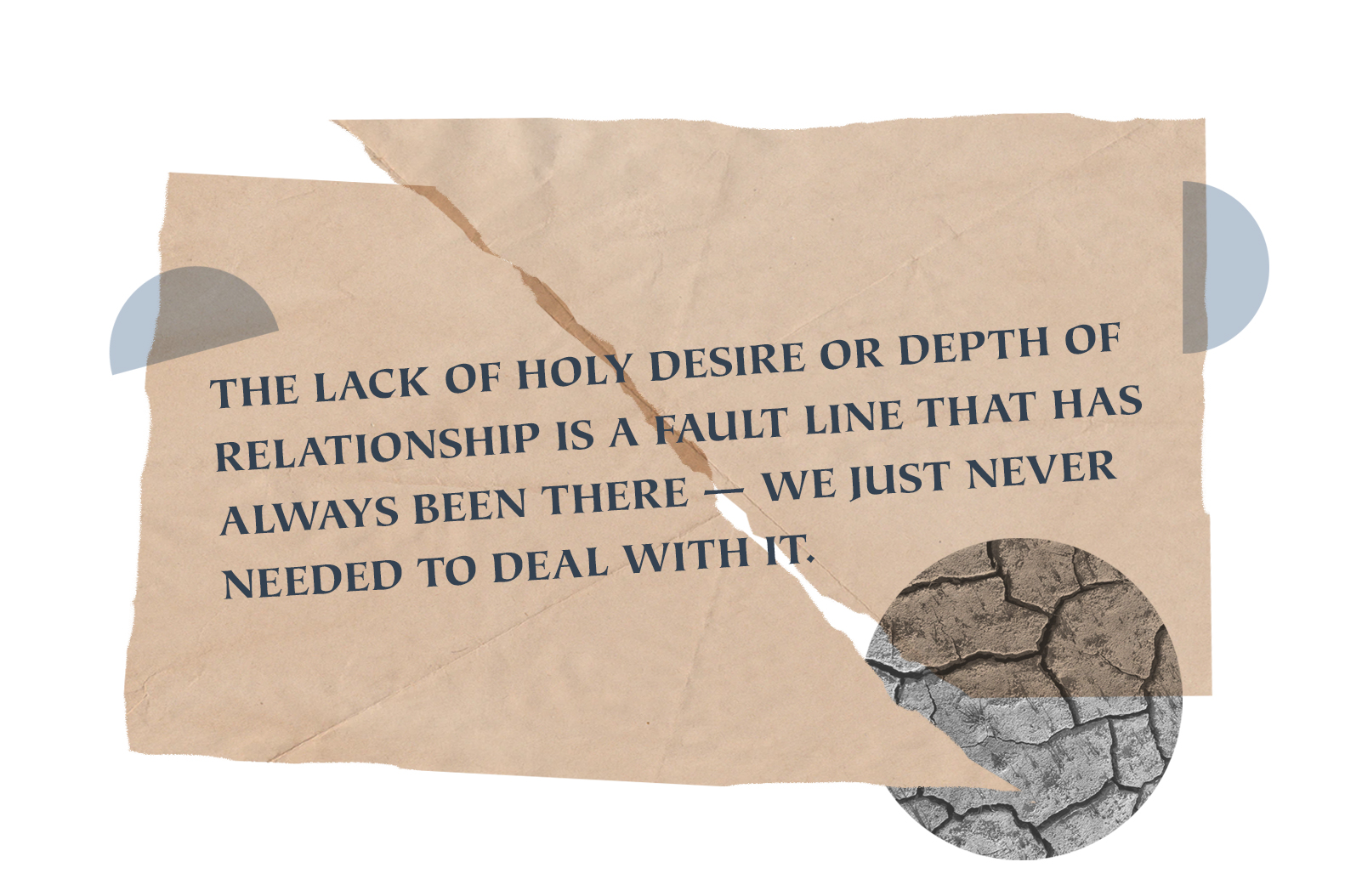
Another example is how mental illness has come to the forefront for so many.
People are locked in and they can’t distract themselves with travelling and stuff like that. People who are already having mental issues have these things magnified.
So, we need to encourage the Church to say, “It’s okay to be not okay. Go get help.”
Then we tell people where to go, and who they can go to for help.
One more fault line is the inner restlessness that we all must face. When we get locked down long enough, this inner restlessness will come up.
Sometimes we think that this restlessness is because we don’t get to travel, so travelling will fix it. But the real root of the restlessness is often a sense of purposelessness.
Now, people must really face up to it, and we cannot distract themselves with all kinds of activities. We have to face up to the fact that there is an inner emptiness that we must deal with.
The exposure of these fault lines gives us opportunities to effect real change!
4. CRISIS RAISES NEW CHALLENGES
Crisis always brings challenges.
One challenge we face is that of convenience versus commitment.
I have observed that those who are committed become more committed. But those who are on the fringe can literally walk away.
COVID-19 has been a separator: it has separated the committed from the crowd.
Our people have tasted the waters of the online church and they have found it quite sweet.
It is convenient to stay online. You can get up at 10 am in the morning — in your PJs — and watch the service not needing to get dressed up and all that.
People just settled down into the online thing. So, when restrictions were lifted, we discovered that not everybody wants to come back, because now we had to get them out of their homes again. They needed to make the effort to come, and that is a challenge.
There are certain aspects of our faith that cannot find its full expression online.
The challenge we are all going to face, across the world, is the issue of convenience versus commitment.
I would want them to know that even though the online church is here to stay, we must be very clear that there are certain aspects of our faith that cannot find its full expression online.
I believe that there are some things that are not downloadable online.
I can think of a few off the top of my head like:
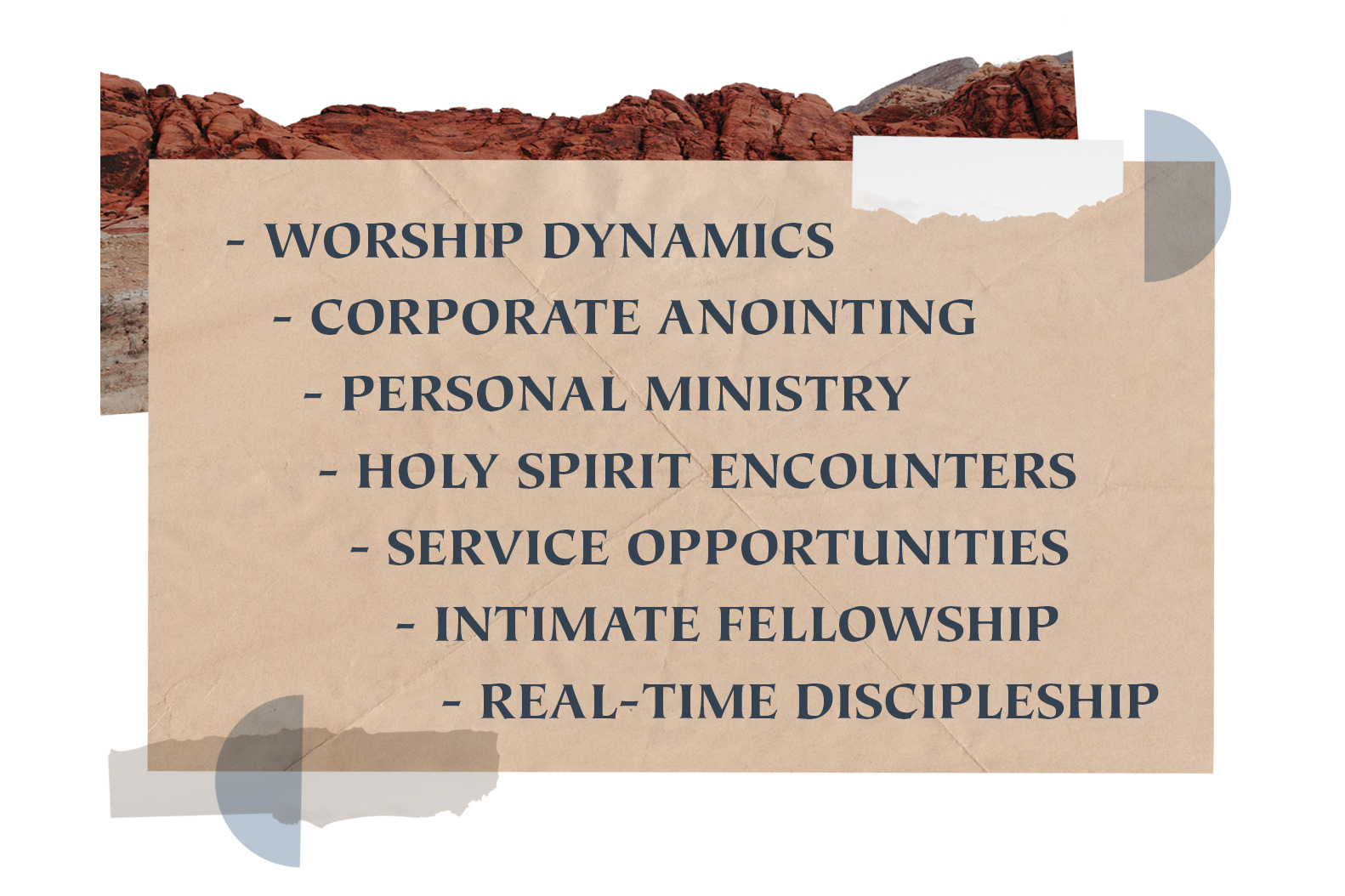
There are many things in the onsite church that are not downloadable through the online church.
If people do not want to come back due to health concerns, I will fully respect that.
However, if they are not wanting to come back to physical gatherings based on convenience, I will want them to consider if they have bowed their knees to the god of convenience.
The very act of getting out of bed on a Sunday morning, getting changed and driving to the gathering of God’s people for worship is an act of consecration.

The second challenge is that of passivity versus engagement.
One of the outcomes of the online church is that Christianity can be turned into a spectator sport where one simply comes on to watch passively or superficially, often while doing other stuff.
I have found that that when the people came back after a few months of the lockdown, our worship engagement dropped.
Our receptivity of the Word — meaning if they will respond to an altar call after hearing the message — dropped.
It takes longer for people to respond. We are too used to just watching passively now.
This is a matter of concern to our pastors.
We need to wean our people away from that. We must challenge the people to come back to onsite service and see the benefits of the onsite church. We must bring our people back.
These are new challenges, but I am sure that we will overcome them. It will take time and effort.
5. CRISIS BRINGS NEW OPPORTUNITIES
One new opportunity is evangelism online.
When the COVID-19 lockdown happened in England, people thought that Alpha was finished.
The reason was that the strength of Alpha is in the meals people eat together, and without that, they thought the program was done.
But the staff and leadership decided to take the course online. Some thought it would never work, but they gave it a go.
And to their surprise, they had thousands of Alpha groups started. It was more successful than they imagined when they moved online!
I was so amazed that I said, “I will give it a go here.”
I handpicked five couples who have evangelism on their hearts and let them trial it.
We had more than 30 salvations at the end!
I discovered that it was an opportunity that we could seize, because people found the online course convenient.
Additionally, during this season when we are not able to go overseas for global missions, we’ve turn our attention to local missions within our city and our neighbourhood.
This has resulted in more local projects to reach out to people around us like our neighbours and along our own streets.
We’ve started more projects to reach local people within our city. This is another good outcome of the pandemic.
COVID-19 has taken us onto the online platform like never before!
6. CRISIS UNCOVERS LEADERSHIP
In times of crisis, we see people rise to the challenge.
You cannot manage your way out of a crisis. You must lead your way out of a crisis.
This is a time where you will see leaders rising to see opportunities during the storm.

Crisis brings us out of our comfort zone and into a creative space.
These are our leaders of tomorrow. This is the time for us to discover, develop and then deploy them for the next season.
7. CRISIS GENERATES URGENCY
This global pandemic has generated a tremendous interest in the study of eschatology.
Many have begun to take a fresh look at the end times. They are wondering how what’s happening today fits into God’s timeline for this world.
All these have resulted in a greater sense of urgency to preach the gospel, in light of Christ’s second coming.
So, since Jesus Christ is coming back again soon, world evangelisation becomes our first priority.
The key to world evangelisation is intentional disciple-making. And the starting point of disciple-making is to be authentic disciples of Jesus Christ.
Let us commit ourselves to make disciples that will make other disciples! This is the urgent task of the hour!

Let me summarise what I have shared with you with this passage from Titus 2:11-14.
“For the grace of God has appeared that offers salvation to all people. It teaches us to say “No” to ungodliness and worldly passions, and to live self-controlled, upright and godly lives in this present age, while we wait for the blessed hope—the appearing of the glory of our great God and Savior, Jesus Christ, who gave himself for us to redeem us from all wickedness and to purify for himself a people that are his very own, eager to do what is good.”
The Grace of God, His Name is Jesus, appeared the first time to redeem us from our sins.
He gave us His Holy Spirit to reform us from the inside out. We are now waiting for the blessed hope of His Second Coming to reward us with eternal life.
This is what we are all about until He comes! Make disciples who can make other disciples! The early church understood discipleship not as a program or a process — but a passion.
The starting point of disciple-making is to be authentic disciples of Jesus Christ.
Someone put it this way: “Christianity started out in Palestine as a passion. It moved to Greece and became a philosophy. It went to Rome and became an institution. It went to Europe and became a culture. Then it came to America and became an enterprise.”
But it started in Palestine as a passion! This is where we must start as a Church! Recapture a passion for disciple-making!
Ask God for a fresh fire in our souls to bring our churches back to the radical root of intentional disciple-making!
Amen!
This article was adapted from a message preached by Senior Pastor Benny Ho at the recent Hope Conference. Organised by Hope Singapore, it was held from May 29-30, 2021 and themed “PIVOT: New Norm Same God”.
Featured image taken from Alpha Asia Pacific.
- How has the coronavirus crisis shaped your faith or perspectives?
- Based on Pastor Benny’s 7 things that a crisis does, how have you seen these changes play out in your church and life?
- Think of a leader or a shepherd you know who is serving in this difficult time. How can you be an encouragement to him or her this week?


